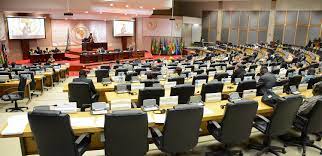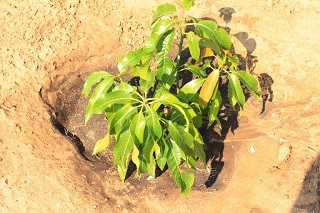
AU should develop and enforce rigorous policies and laws to hold accountable “major” emitters

Following deliberations and proposals recently made by various stakeholders at the third Pan-African Parliamentarians (PAP) Summit on Climate Policy and Equity held at Midrand, South Africa, from 16 to 17 May, the parliament recommended that the African Union (AU) develop and enforce rigorous policies and laws to hold accountable “major” emitters and ensure they are liable for the consequences of their actions on African people.
During the two-day summit, the parliament made eight broad recommendations each per Article 11 (1) of the PAP Protocol, which empowers the PAP to make recommendations and formulate resolutions on any matter relating to the AU and its organs, regional economic communities and their respective organs, member states, and their organs and institutions.
It emphasized that Africa is one of the most vulnerable regions to the adverse impacts of climate change, which threaten its socio-economic development, prosperity, peace, security, human rights, and dignity, and that it is a region with special needs and circumstances under international climate law.
Meanwhile, the parliament also reaffirmed its commitment to the principles and objectives of the United Nations Framework Convention on Climate Change (UNFCCC), the Paris Agreement, and the 2030 Agenda for Sustainable Development.
According to recommendations adopted at the end of the summit, the AU should domesticate and implement the provisions of the UNFCCC and the Paris Agreement as well as other relevant international instruments, including through the development of robust action plans and strategies and the allocation of adequate budgetary resources to address climate change remediation measures.
Furthermore, the PAP also recommended that AU strengthen mechanisms for holding accountable transnational corporations and governments responsible for climate change atrocities by implementing taxation measures that generate funding for the reparation of victims of loss and damage.
“Develop and review the legal, policy, and institutional frameworks that support the mobilization of more finance from various sources, including the public and private sector, and create an enabling environment that fosters innovation, collaboration, and transparency in the financing of climate action.
“Develop and foster a clear, coherent, and coordinated set of continental priorities for COP28, including prioritized demands of highly indebted countries, which reflect the needs and aspirations of the African people, as well as the challenges and opportunities they face in achieving sustainable development and resilience.”
In one of these recommendations, the PAP further recommended exerting pressure on developed countries to commit to more than doubling their adaptation funding by 2025 and provide clear pathways and plans for achieving this goal. “Such adaptation funding should reflect the actual costs and priorities of the most vulnerable and marginalized communities, who are facing the impacts of climate change, and should not be driven by donor interests, conditionalities, or political agendas,” it said.
Additionally, these recommendations are intended for guiding member countries in a direction that aligns with African realities.
“To the extent possible, avoid fragmentation of efforts that undermines the unity of purpose, build confidence, and optimize utilization of existing Initiatives as platforms for consistent engagement. To this end, consider the Climate for Development in Africa (ClimDev-Africa) Initiative as the premier and most inclusive Pan-African framework that can potentially spearhead the implementation of decisions on Pan-African institutions, including but not limited to this Summit, the Africa Climate Summit and other processes,” the PAP concluded.












































